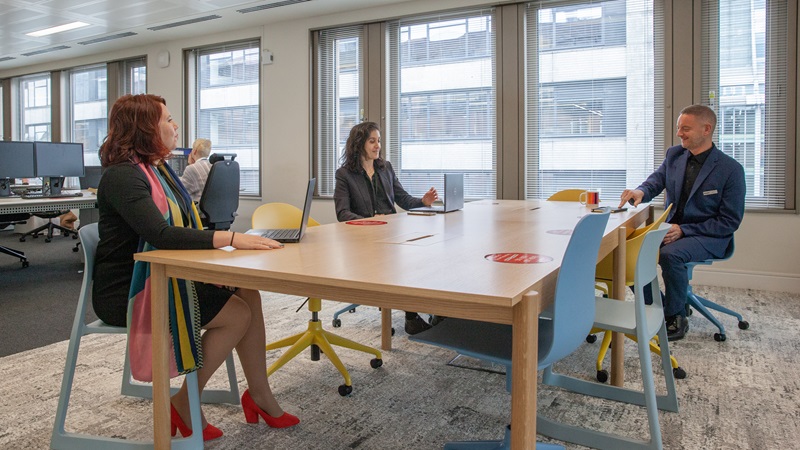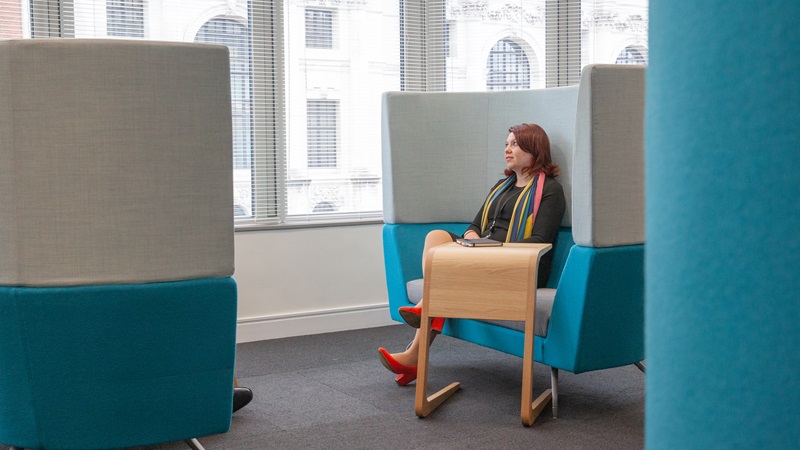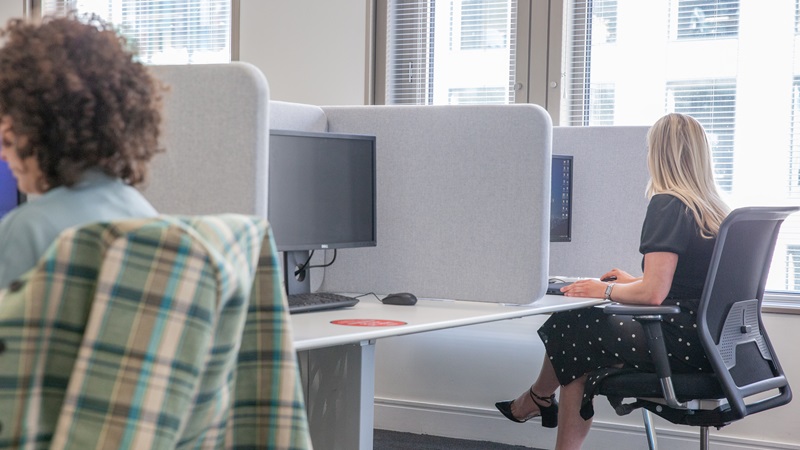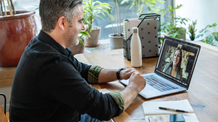Perspectives
Towards a more agile future of work
The workplace will never be the same again.
The last 18 months has shown us that increased flexibility and remote working is here to stay – but what does the reality look like for business?
In the UK, we’re beginning what our Prime Minister has called ‘a return to normality’, and we’re likely to see many more people returning to the office more regularly over the next few months.
Mace’s Deputy Chairman, Mark Holmes, explains how Mace is planning on increasing flexibility for all of our people around the globe – and what it means for the future of the office.
But that can’t last for ever. We’re approaching the moment where everyone needs to make a decision about what that future will look like.
At Mace, the rise of remote working has been transformative.
Whether they’re helping our clients run their offices, managing some of the most iconic construction projects across the globe or delivering our own developments, everyone at Mace has had to learn to work differently – and for most people, more flexibility about where we work has led to increased productivity and a better quality of life.
There will always be some roles where flexibility is limited, particularly in construction, where maintaining our site presence is essential – but we’ve recognised that the future of work will be shaped by increased agility and choice for almost everyone.
We know that the war for talent will define success for many businesses; and that people will be able to be much more selective in the future about working for a company who will give them the flexibility and agility they want.
Finding the right balance will be key. It will be different for every business – but those that get it right, will set the standard for others and will lead the way on talent attraction and retention.
Making the ‘new normal’ a reality
We are not the only company thinking this way – but as property advisers to some of the world’s biggest firms, we’ve seen that many companies are having to commit to hybrid working but haven’t committed to what this means for the workplace.
That’s why at our global headquarters in London, we’ve put our money where our mouth is.
To create more collaboration space and encourage colleagues back to our office, we’ve repurposed and redesigned our offices to remove more than half of the desks; replacing them with new spaces that encourage people to work differently.
We have also introduced a new workplace app to help people manage the space they want to use – whether that’s booking a desk for the day or finding the meeting space they need to collaborate effectively.
Our vision is a future where Mace colleagues choose the best setting for the work they’re doing that day – whether that’s ‘head down’ working at a desk, working collaboratively with their team on a project table or talking something through on a sofa in a less formal setting.
That pilot is the beginning of a planned global roll out of changes to our offices around the world, encouraging our people to think differently about how they work.
Alongside that, we’re introducing a new approach to agile working, giving our people the choice of three different kinds of working arrangement; each of which gives colleagues the option to work remotely at least two days week where appropriate.
We’re embedding that choice into colleagues’ personal contracts in the UK, meaning that everyone will be able to choose – in discussion with their manager – the work setting that fits them best.
Our new agile working policy builds on that choice and will give everyone – even people whose job prevents them choosing a more flexible work setting – the right to be more flexible where their role allows.
Looking long-term, that flexibility will be at the heart of our offer to our people and potential recruits – a core part of who we are as a business and how we grow together with our colleagues.
Getting the balance right
This was never going to be a simple shift.
Across the world we’re going to see the biggest change in working habits in generations, and that will always come with challenges.
For people at the beginning of their careers, working around other people is key to their development, and we know from the last 18 months that you can’t replace in-person collaboration to deliver real innovation, fresh thinking and relationship and network building.
We also need to recognise that some jobs just aren’t going to be able to be that flexible – but we don’t think there are many people who can’t be given some kind of choice about where they work, even if it’s for a limited period every week.
Hybrid working also requires thinking about the technology you provide to your people. By now most people will have struggled through a meeting where half the people in a meeting are remote, and the other are in an office. That can be overcome, but it needs proper investment and planning.
Those challenges shouldn’t stop us thinking differently. The workplace needs to change, and our expectations of how everyone works need to change with it.
The more flexibility you offer people, the more important it becomes to create a working environment that encourages people to come into the office, and the right work setting to enable them to be effective in a hybrid working world.
We’re not claiming to have all the answers – but we’re ready for the challenge, and we’ll be finding the way forward in partnership with our people.
The future of the workplace is happening now – will you be leading the way or falling behind?













